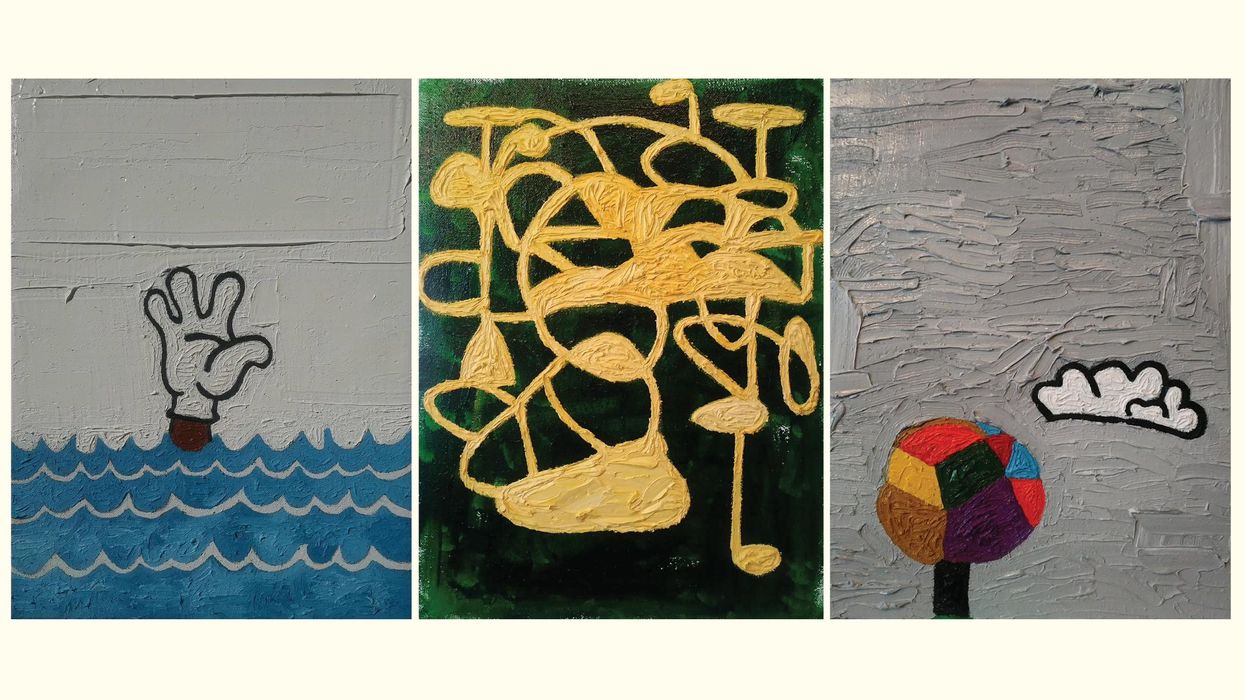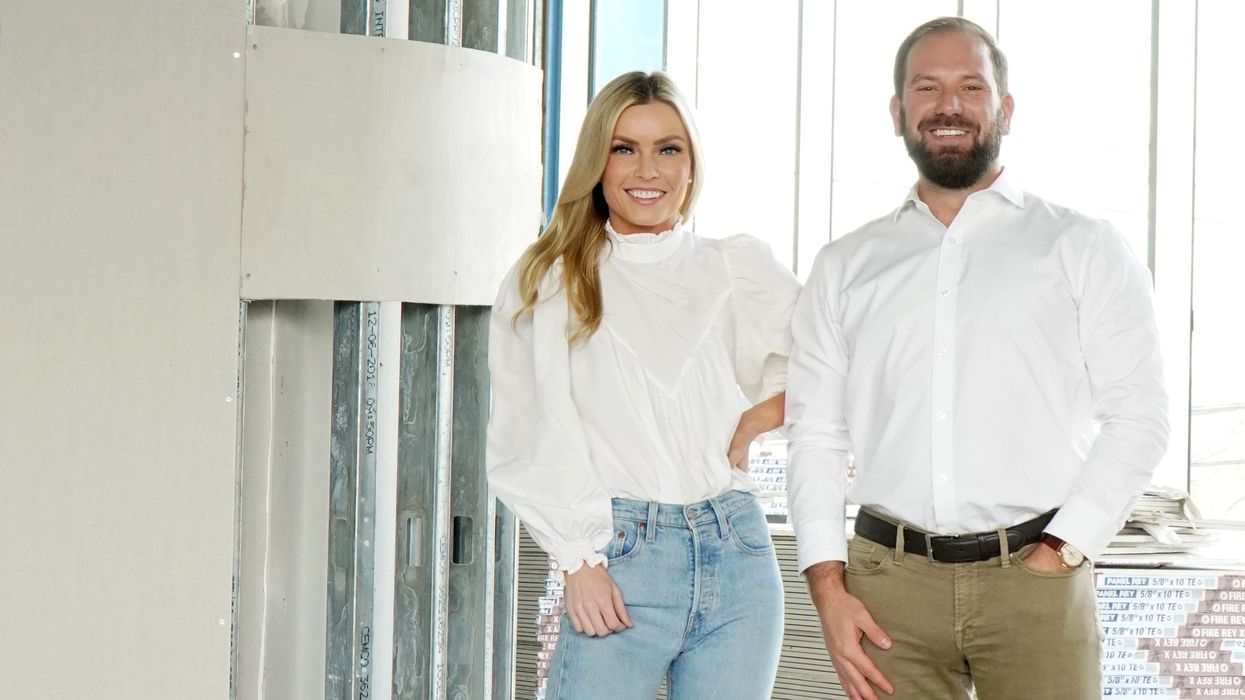A Beloved Artist Brings Joy to His Cancer-Fighting Mom by Dedicating Paintings to Her, Over and Over

McGee's 'Gloria' paintings include 'Comedy of Errors,' 'Gloria's Yellow Flower' and 'Tree and Cloud'
WHILE THE HOUSTON art scene continues its cautious return to pre-pandemic normalcy, with a dance that feels two steps forward and one step back, it’s clear the months of masking and self-imposed quarantining has for some artists been incredibly productive.
For David McGee, who cherishes a quiet night at home, alone, with good film and a fine cigar for company, the past two years has allowed for some much-needed interior work — though not without some unexpected, serious stress. “On top of the pandemic,” says McGee, “I had to deal with my mother having cancer, a person who had never been sick a day in her life.”
Shortly after his mother’s diagnosis, McGee began working on a series of vibrant, brightly colored paintings, each one titled with her name, Gloria. Between the challenges of treating cancer in a time when hospitals were at capacity, and a news cycle culminating in last year’s attempt to overturn the presidential election, McGee understood the potential for he and his family to sink into depression. “Making the Gloria paintings was way to give my mother a gift of joy,” says McGee, “and get her mind off of Covid-19 and the cancer.”
McGee describes the Gloria paintings as abstract, but with recognizable shapes and patterns, including balloons, flowers, trees, bathers and musical notes. ‘Sometimes, you can’t label them,” says McGee, “but they’re shapes that everybody knows.”
Other works in the Gloria series are more anxious, and speak to McGee’s sense of gallows humor, such as "Comedy of Errors," where a skinny arm and three-fingered hand, most likely that of a certain, cheery cartoon mouse, reaches up from beneath the waves of a deep blue ocean as if to signal, “Not waving, but drowning.” “It’s a self-portrait,” McGee says quietly of the painting. “If you’re going to paint a homage to somebody you care about, you’ve got to talk about the dark days as well.”
Thankfully, two years after her diagnosis, McGee’s mother is doing much better, and her cancer is in remission. With an eye of the future, McGee plans to show the Gloria series, along with other works made during the pandemic, sometime in 2022. In the meantime, Houstonians can and should check out McGee’s painting installation Black Star, currently on view in Lawndale’s Main Street windows, as well as Colonial Wipe Out, a newly completed work inspired in part by the well known early 19th-century Japanese print, The Great Wave off Kanagawa, and featured in the Glassell School of Art’s current exhibit Figurative Art in Houston: 2000-2021.
- With New Record Coming, Houston's Busiest Singer Seeks ... ›
- The Most Wanted - Houston CityBook ›
- MFAH Supporters Keep it Weird at Annual Glassell Auction - Houston CityBook ›
- Opening Saturday, a New Inman Gallery Exhibit Shows the Good Fortune of Treasured Artist David McGee - Houston CityBook ›
